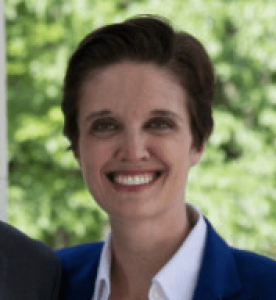Kris Nessa, Enterprise Director of Customer Success at the Dell Medical School, discussed enterprise-wide innovation, internal customer experience, patient experience, and more with host Bill Russell on Influence.

Kris Nessa, Enterprise Director of Customer Success at Dell Medical School, University of Texas at Austin
Her role covers entry points for the organization, where she proactively drives the success of experiences in clinical operations, applications, informatics, finance, and patient experience. She explained that her position is comparable to translating. She has to understand aspects from a business standpoint, know the clinical workflow, and then design and translate the information at a technical level for her counterparts.
The pandemic has exposed the intersection of technology, information, operations, and the business of healthcare. According to Nessa, healthcare professionals can forget that they are also patients, leading to the patient experience being overlooked.
"I'm a patient. We're all patients. But we sometimes forget about that. The business of healthcare is a business that none of us think about using until we are actually forced to use it, until our family members are or our child is there. And when we are there living it and breathing it, we expect a world-class care experience," she said.
In this same vein, the COVID-19 pandemic has elevated the opportunity to care for patients in their homes, she explained. With this additional exposure, health systems can shift further to this model of care.
"There is no shortage of technology and innovation and things that are used in other business pillars in the world that we should be using in healthcare. We've always been slow to adopt," she said.
Patients are also taking on the role of a conscious consumers, she identified. Therefore, they are looking for the best of the best and ease of access from health systems.
"I don't necessarily want to be in a hospital. But when I'm there and need care, I want it to be world-class all the time," she said.
These changes also brought attention to the lack of infrastructure in some communities. Some patients do not have the means for or access to broadband, which limits their access to telehealth visits or remote monitoring. Nessa expressed how rethinking costs connected to physical care facilities compares to low-cost options like shipping a wifi router or video camera to patients, therefore enabling a patient's home for basic, bare-minimum needs.
According to Nessa, studies have shown that patients with chronic conditions may have a better chance of recovering at home as well, according to Nessa. Therefore, healthcare providers need to enable their communities so they can be cared for at home.
"We can use all of our research and our modeling; we can take their data, model it. We can start providing care remotely. It’s low cost, and it's innovative... But on top of that, the patient should be on a path to recovery that is better than before," she said.
A shift to remote care will not just benefit patients. Health systems traditionally build expensive brick-and-mortar facilities for care. These costs could be reduce by moving "beds" into the patients homes.
Nessa has held to the values of being transparent, open, and honest in her work. Therefore, she has focused on gathering the voices of customers; whether it is a patient or a clinical operations personnel, she has found value in having conversations and asking questions.
In past positions, organizations held patient platforms to collect feedback. There, Nessa saw that by welcoming both good and bad input, there was the ability for improvement.
"If it's a patient complaining about something, you need to hear it because there is an opportunity there. None of us are perfect. We all know we can improve somehow," she said.
The 21st Century Cures Act is currently impacting how care providers and clinicians experience healthcare. According to Nessa, a dynamic imbalance is forming between technology, vendor developments, and the responsibility of operations.
Additionally, the events of 2020 escalated conversations regarding transparency, information blocking, and the importance of clear notes from physicians.
"Everything that has happened in this past year has really shaken up all of us. I think, as an industry, it made us reevaluate a lot, especially for our internal customers," she said.
Another aspect has been holding vendors accountable. From a value perspective, Nessa explained how it is essential to maximize the tools the organization already has. This became increasingly clear when the budget restrictions following COVID-19 created a "make it work" mindset. A goal of Dell Medical School was to effectively utilize items in-house while also working strategically with vendors to maximize their relationship and value.
The pandemic created a sense of urgency within many teams unlike anything they had experienced before. According to Nessa, she had worked at this pace with her previous and current employer even before the onset of the pandemic. However, Nessa has believed it will prompt organizations and C-suite executives to continue to work together to maintain this level of efficiency, if they had not already.
“I do think some will pivot and do this. But it comes down to the relationships and that trust together as an organization to continue to do it," she said.
Team have also been maximizing innovation around data, according to Nessa. It has been becoming a standard practice for data to create a delivery point to telehealth care. As clinicians look to expand upon home health, there is a pivot to effectively utilize decades of electronic health records.
Nessa explained how research algorithms can potentially predict patient's health using data; therefore, clinicians can proactively discuss long term effects. She has believed the next step in healthcare could be utilizing data and other applications to create holistic workflows and equip the patients with their data.
"The data, I think, is going to be very, very powerful in this next five to ten years," she said.